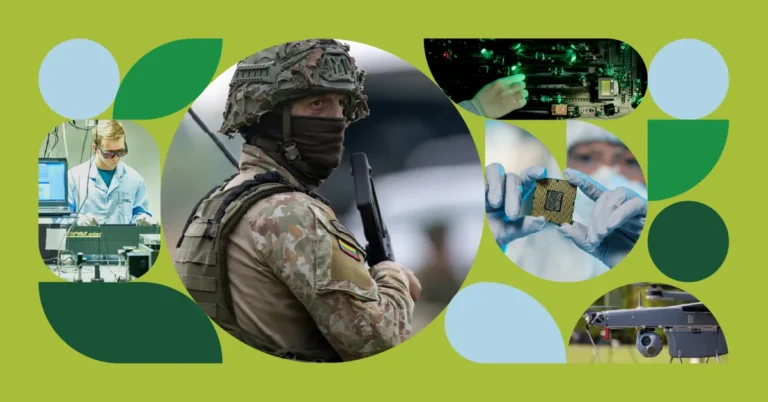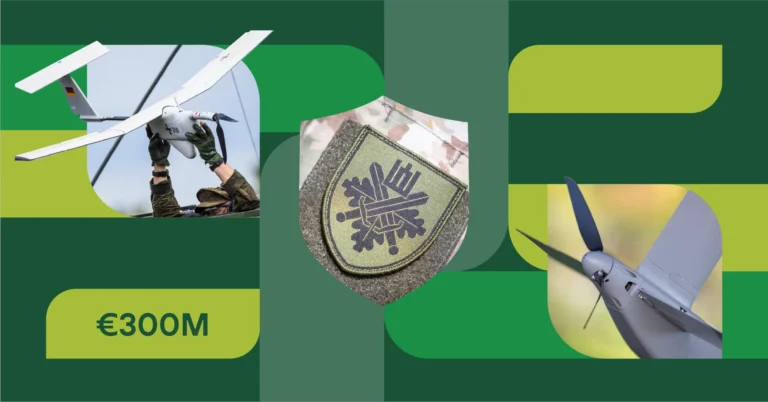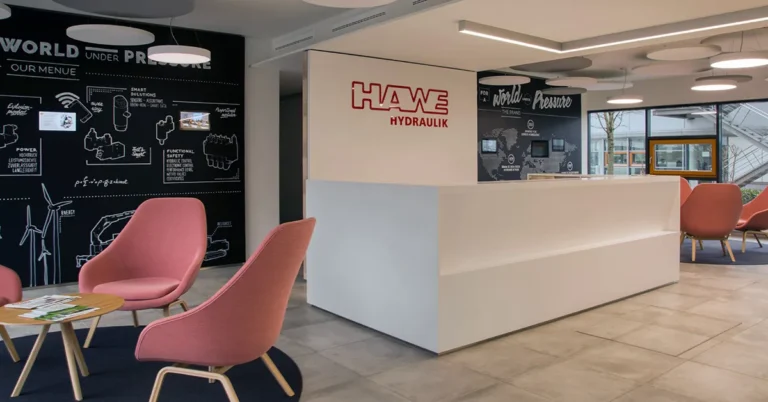With a highly educated population, a strong focus on high-end technologies and R&D, and a growth-oriented business environment, Lithuania is positioning itself as more than just another low-wage production country in the east.
In the packing area of a workshop, two packages containing ready-made parts are awaiting shipment to a Swiss customer. One contains eight items, a sticker reveals; the second only three. This could be a typical low volume order from a precision Danish supplier in the metal industry. But we are not in Horsens or in Skovlunde, we are in an industrial zone in Vilnius, Lithuania, in the warehouse of Danish-Lithuanian joint venture company Precizika Metal.
In this 2,500 Sq. meter workshop, with its 19 CNC machines, there is none of the bitter smell of outsourcing which usually accompanies Scandinavian production facilities in Eastern European.
Skills, not price, now the key factor
Precizika Metal is owned by Ingemann Holding A/S, which also owns Ingemann Maskinfabrik in Roskilde. And Precizika is much more than just the poor relative of the Danish office, insists the company’s deputy director Nina Ronlev. The model being applied here is not the usual global division of labour, with low volume production in the west and high volume production in the east.
On the contrary, Precizika deals primarily with small, bespoke orders. They also have developmental responsibilities, doing precision work on material down to the size of a grain of dust. Their equipment can handle tolerances as low as 0.001 millimeters, and prototypes are a growing niche business for Precizika.
In fact, workflow is divided between the offices, with the Danish facility dealing with larger orders and the Lithuanian unit with small ones. “Of course, we don’t hide the fact that we are cost-effective here in Lithuania. But there is also great innovation operating in the market, and many of our customers come knocking on our door with their ideas,” says Ms Ronlev.
The same market perception is shared by Kitron, a Norwegian electronics manufacturer, which has a manufacturing unit with 400 employees in Kaunas, Lithuania’s second largest city. For them, it is time-to-market which is the most important parameter, not price.
“The market is driven by innovation. It is not just price that is the big driver for us anymore; it’s also technology and innovation. So we will definitely invest in test equipment and probably new surface-mount technology (SMT) lines,” says Kitron’s Managing Director, Mindaugas Sestokas.
Hardcore technology and tailoured production
Precizika Metal is one of an estimated 250 companies in Lithuania which have some form of Danish connection, either through ownership, or as joint ventures and partnerships.
Lithuania, with a population of nearly three million people, has the lowest wages in the Baltics according to some statistics, allowing it to compete with the likes of Poland. Yet unlike Poland, with its mass production of cars and tobacco, Lithuania is positioning itself as an expert in small-scale, tailoured production and hardcore technology development. Lithuania is especially strong in robotics, mechatronics, medical and material research, and IT. The country is aided by a highly educated population and strong IT infrastructure, boasting the EU’s highest upload speeds for broadband connections in 2013.
“There is a trend towards more hardcore technology. The crisis in 2008-2009 taught us to think differently, so now we focus on engineering and software,” says Danish entrepreneur Thomas Solupajev Ronlev. Mr Ronlev, a former chairman of the Danish Chamber of Commerce in Vilnius, is a co-founder of the Vilnius unit of Danish robotics incubator Blue Ocean Robotics.
“I don’t want to talk about low prices. I would rather talk about the fact that you get access to the best talent for very reasonable rates,” Mr Ronlev expains.
Robotics development in Lithuania
Blue Ocean Robotics’ Lithuanian operations started in the summer of 2014, and were the company’s first venture outside Denmark. The Lithuanian office employs six permanent employees plus contractors. And just as in Denmark, its core competence is the commercialization of robotics development for both industry and the public sector.
As with Precizika Metal, Blue Ocean’s Lithuanian facilities are not just there for outsourcing individual sub-processes. For instance, Mr Ronlev points out that the development of an upcoming window assembly robot to be used in the construction industry is being carried out entirely in Lithuania, and there are other projects on the go. Incidentally, Blue Ocean is subcontracting Precizika Metal, with whom they share facilities in Vilnius, to work on the window assembly robot.
Mr Ronlev and his colleagues also have a little corner of Precizika’s workshop where they are working to develop a standard robot system that can identify and buckle small items in an edge press, thus reducing the amount of manual work required.
Good prospects for Danish-Lithuanian cooperation
In the wake of the collapse of the Soviet Union, and shackled by an over-reliance on trade with Russia, the 1990s were a turbulent time for Lithuania. Since then, however, the Baltic State has become an integral part of the EU common market, having become an EU member in 2004 and having adopted the Euro in January 2015.
The state attracts foreign investors with corporate tax levels of 15 per cent, and with other incentives such as a three times tax credit for investment in R&D. But there are many reasons to establish oneself in Lithuania, says chief consultant at DI, Helle Bundgaard. Among other advantages, Mr Bundgaard notes Lithuania’s geographical proximity to Denmark, and a historically close relationship between the countries.
“We have a positive view of Lithuania as a near market and would like to help to support businesses that set up there. The logistics are easy: you can fly from Kastrup, there is a major industrial port in Klaipeda, and you can drive the southern route in a truck. For us, it is essential that Lithuania is an EU-member and therefore has the same framework in relation to the internal market. So the long-term perspective is positive. Danish businesses are helping to support the development of a positive business environment in Lithuania,” explains Mr Bundgaard.
“Both-and” instead of “either-or”
Mr Ronlev has lived in the country for 17 years and has therefore witnessed firsthand Lithuania’s transition from a Mafia-controlled Klondyke in the 90s to the open European market economy it is today.
One senses that over these years he has been presented many times with the argument that increased activity in Eastern Europe equals fewer jobs in Denmark. It’s an argument he refutes.
“It is not a question of either-or. I think we should talk more about both-and. It is possible for Blue Ocean Robotics to grow both in Denmark and abroad.” And Mr Ronlev is indeed true to his word, with Blue Ocean’s 70 employees equally distributed between the Denmark office and its units abroad.
Read the article at ing.dk













